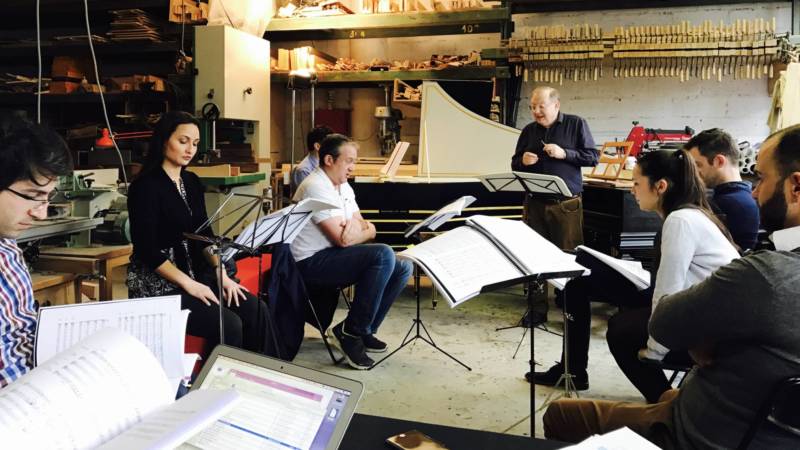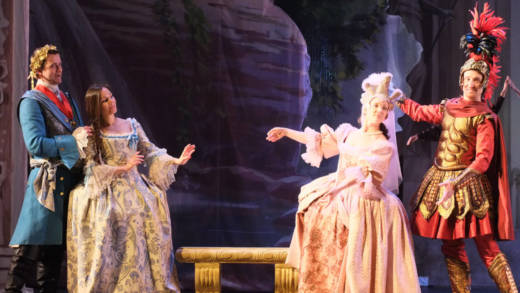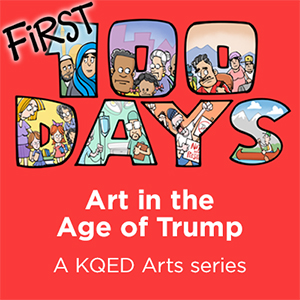Opera has always been a means for voicing political dissent. Mozart’s The Marriage of Figaro criticized the aristocracy. Verdi’s operas reflected on Italy’s struggle for independence. John Adams wrote a whole opera about Nixon’s 1972 visit to China.
Even a frilly Baroque opera-ballet like 18th century composer Jean-Philippe Rameau’s The Temple of Glory (Le Temple de la Gloire) uses history to weigh in on current events.
Nicholas McGegan is conducting the Bay Area’s Philharmonia Baroque Orchestra and Chorale in a rare production of the obscure French work in collaboration with Cal Performances at the end of the month. “It’s really about what makes a good leader, which is topical,” McGegan says of the allegorical work’s particular relevance to U.S. audiences today.

The satirical libretto, by Voltaire, follows what happens when a variety of different kings try to enter Apollo’s “Temple of Glory” — a bower for heroes guarded by the Muses. Two of the monarchs are barred for brutality and drunkenness. The third, Trajan, is allowed in for his generosity — he lets five conquered kings go — and insists on making the temple a bastion of inclusivity, “each rank, each sex, each age.”




